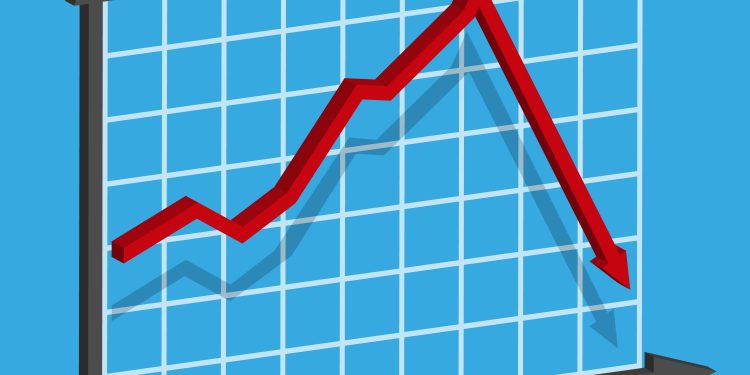There are plenty of ways to anticipate the next recession. But, if you ask Bank of America, an economic downturn could be sooner than later, according to a story from Yahoo Finance.
The macro-economic picture is deteriorating fast and could push the U.S. economy into recession. As a result, the Federal Reserve tightens its monetary policy to tame surging inflation, BofA strategists warned in a weekly research note.
“‘Inflation shock’ worsening, ‘rates shock’ just beginning, ‘recession shock’ coming,” BofA chief investment strategist Michael Hartnett wrote in a note to clients, adding that in this context, cash, volatility, commodities, and cryptocurrencies could outperform bonds and stocks.
Deutsche Bank was equally pessimistic, according to CNN.
The Federal Reserve’s fight against inflation will spark a recession in the United States that begins late next year, Deutsche Bank warned on Tuesday.
The recession call — the first from a central bank — reflects growing concern that the Fed will hit the brakes on the economy so hard that it will inadvertently end the recovery that began two years ago.
“We no longer see the Fed achieving a soft landing. Instead, we anticipate that a more aggressive tightening of monetary policy will push the economy into a recession,” Deutsche Bank economists led by Matthew Luzzetti wrote in the report.
And at the New York Times, the former president of N.Y. Fed said the risk of recession is dire:
A former president of the Federal Reserve Bank of New York, William Dudley, called a recession “virtually inevitable.”
He is among the economists arguing that if the Fed had begun raising interest rates last year, it might have been able to rein in inflation merely by tapping the brakes on the economy.
Now, they say, the economy is growing so rapidly — and prices are rising so quickly — that the only way for the Fed to get control is to slam on the brakes and cause a recession.
Aside from the posturing about when the next recession will be, credit card managers should look at two simple indicators to address their acquisition strategies for the rest of 2022 and into 2023. Consider how much debt is growing, versus trends in household savings. These metrics sum up how well households are doing, with rising interest rates, surging inflation, and general confidence in the market.
Here’s what we see. Borrowing is up. Savings rates are down. The divergence of these two numbers suggests that lending policies should tighten.
According to the latest numbers by the Federal Reserve, revolving debt is just about on par with pre-COVID volumes, with steady increases from April 2021, when the number stood at $965 billion, until the latest numbers, for February 2022, when the metric hit $1.01 trillion.
But, when you layout personal savings rates, the latest metric is 6.4%, substantially down from the peak during the CARES Act distribution, in 33.8%, but that was an anomaly. The running average since January 2017 has been 10%.
As the economic stress continues with increased inflation and rising interest rates across the globe, lenders must consider their credit policies. Should they wait until the economy is under pressure, or perhaps tap on the brakes to moderate risk?
If the recession turns into a depression in the short term, conservative lending is critical. It is easy to build up loan books as the economy runs down, but during the Great Recession, 10% charge-offs cost credit card lenders billions of revenue loss.
Lending is easy as the economy deteriorates, but do not forget that one $5,000 charge-off will eliminate the profit generated by 15 good accounts. And that is enough of a reason to think twice about credit extension. Don’t stop lending, but watch out for the fringes. Inclusion sounds great on paper, but perhaps during an economic upturn, not a brewing storm.
Overview by Brian Riley, Director, Credit Advisory Service at Mercator Advisory Group







